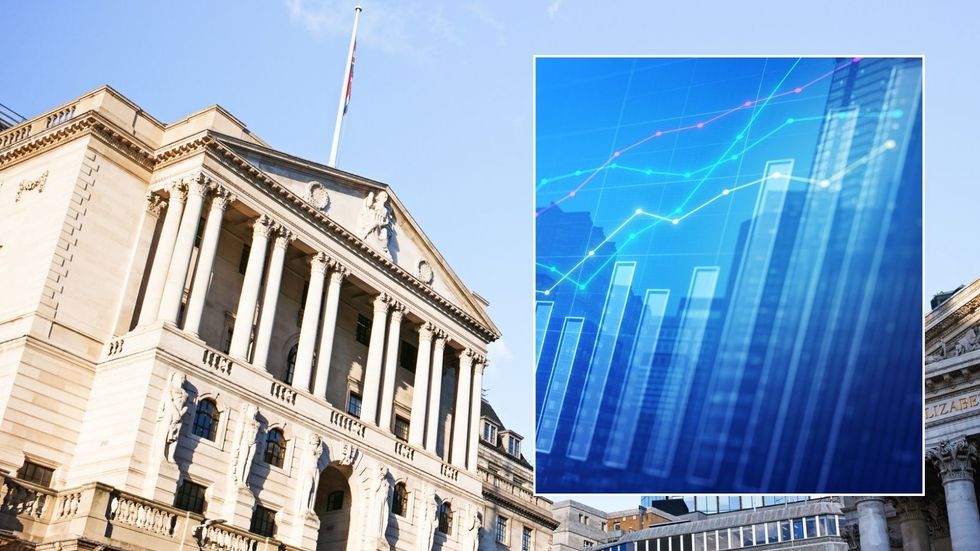UK households face 'a lot more inflation' as Labour's fiscal drag extension will 'damage growth' in economy
Labour's fiscal drag extension will 'damage growth' in economy
Potential plans to extend the freeze on income tax thresholds could raise £7billion a year for the Government
Don't Miss
Most Read
Trending on GB News
A Bank of England rate setter has warned that extending frozen tax thresholds could lead to "a lot more inflation" and damage economic growth in Britain.
Catherine Mann, a member of the Bank's Monetary Policy Committee, highlighted concerns about the major impact on middle-income earners.
Labour Chancellor Rachel Reeves may extend the current freeze on income tax thresholds in her upcoming Budget on October 30 in a move that could potentially raise an additional £7billion for the Treasury.
The extension would prolong the effects of "fiscal drag", where inflation pulls more people into higher tax brackets despite no real increase in income.
Mann cautioned that this phenomenon has already become a "significant drag" on economic growth as the middle-income group "have been exposed to a relatively greater degree to tax-bracket creep".
 The central bank previously raised interest rates to a 16-year-high GETTY
The central bank previously raised interest rates to a 16-year-high GETTY Income tax is paid on earnings above certain thresholds in the UK. Currently, the basic rate of 20 per cent applies to earnings above £12,570 annually.
A higher rate of 40 per cent is levied on income exceeding £50,270, while earnings over £125,140 are taxed at 45 per cent.
These thresholds have been frozen since 2022, with the freeze set to last until 2028. However, Labour is reportedly considering extending this freeze until 2030.
The Institute for Fiscal Studies estimates that such an extension would result in 400,000 people paying income tax for the first time. Additionally, 600,000 individuals would be pushed into higher tax brackets.
David Denton, technical consultant at Quilter, warned: "Someone earning £60,000 today could expect to pay an additional £3,579 in income tax between the 2028-29 and 2029-30 tax years compared to if allowances had kept up with earnings."
Mann emphasised the particular impact on middle-income earners, stating: "This middle-income group is an especially important one. They have been exposed to a relatively greater degree to tax-bracket creep."
LATEST DEVELOPMENTS:
She warned that this group's purchasing power has been hit not only by inflation but also by paying higher rates of income tax.
Mann also cautioned that Britain's economy still faces "a lot more inflation" despite the recent drop to 1.7 per cent in September. She told a panel in Washington that price deceleration would not sustainably reach the Bank's two per cent target in the medium term.
The economist added that there was no prospect of interest rates returning to pre-pandemic levels, which had remained below one per cent since 2009 following the global financial crisis.
The potential extension of the tax threshold freeze has sparked debate about its impact on the economy and taxpayers.
While the Government argues it doesn't breach the pledge to "not increase taxes on working people", critics view it as a "stealth tax".
The freeze affects not only income tax but potentially National Insurance as well. Reeves is reportedly considering a hike to employer contributions and changes to pension contribution exemptions.
These measures could indirectly impact workers through smaller wage rises or hiring freezes, as businesses attempt to mitigate increased costs.







